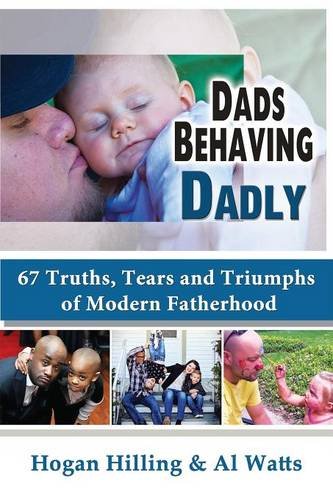No one likes losing, but the way we handle loss says almost as much about our character as how we behave when we win. I find teaching that concept to my 5-year-old son more difficult than draining a bathtub with a colander.
We recently went to the year-end celebration at my daughter’s school, a fundraiser for the Centerville Elementary PTA. I asked Gavin if he wanted to participate in the book raffle and he enthusiastically shouted, “Yes!”
I should have known we were headed for trouble given his reaction — he has no idea what a raffle is — but I chalked it up to the excitement of the evening. The room was crowded, the music was loud, and he was anxious to jump on the moon bounces. He probably would have agreed to eat a pound of broccoli.
We dropped a few tickets in the small buckets in front of several books in which Gavin showed an interest, and went about enjoying the rest of the evening. He didn’t question anything.
When the time came for the book raffle, we stood at the edge of the crowd, and Gavin waited patiently as a woman with a microphone announced whose ticket was picked for which book.
His eyes lit up when she held up the book he wanted — something about dinosaurs or robots or maybe robotic dinosaurs — but they quickly scowled when she called someone else’s name.
Crocodile tears followed as he cried how someone else was taking his book. He thought we bought the book when we dropped our tickets in the bucket. He didn’t understand that we had to win it.
I carried him to the back of the room, and kneeled down to give him a hug. I explained that we didn’t buy the book, and that we had to win it in the raffle. I told him we just didn’t win, at which point he cried that he was a loser.
“You’re not a loser, Gavin,” I said. “We just didn’t win the book, but that doesn’t mean you’re a loser.”
“But I didn’t win,” he continued through cries. “That means I’m a loser.”
Gavin has never taken well to losing, and we have struggled to teach him otherwise. I made a colossal mistake one day a few months ago when he stormed out of the room crying after losing a board game.
I followed him and calmly said he was behaving like a sore loser, and that no one likes playing with sore losers. Of course, the only word he heard was “loser” and that did not help matters.
“Daddy called me a loser!” he cried.
I realized my mistake right away, so I tried to explain to him that I didn’t call him a loser, that I merely said he was behaving like a sore loser. That made matters worse.
“See!” he cried louder. “Daddy called me a loser AGAIN!”
I felt awful. In that one moment, I had somehow managed to make Homer Simpson look like Dad of the Year.
I decided to shut my mouth and give him a hug, but he went running to my wife, Karen. I was toxic in Gavin’s eyes, and felt worse. I could only apologize, so I did and he eventually calmed down.
I’ve struggled since to teach him how to react better when he loses. He throws down the baseball bat too easily when he misses the gentle pitches I toss his way when we play at the side of the house.
I try to explain to him that hitting a baseball is hard, that even the best players in the world fail to hit the ball most of the time. Of course, he doesn’t understand batting averages, so he just storms away to fetch a different toy.
I often feel at a loss, at which times certain song lyrics run through my head.
“You’ve got to lose to know how to win.” (“Dream On,” Aerosmith).
Or, “You can’t win ’til you’re not afraid to lose.” (“Just Older,” Bon Jovi).
Other times I think of famous quotes about failure and losing.
Thomas Edison: “I have not failed. I’ve just found 10,000 ways that won’t work.”
Michael Jordan: “I’ve missed more than 9,000 shots in my career. … I’ve failed over and over and over again in my life. And that is why I succeed.”
Henry Ford: “Failure is only the opportunity to begin again more intelligently.”
I know none of these songs or quotes will do Gavin any good because he’s only 5 years old, but they make me feel a little better about my own failings in teaching my son how to lose with dignity.
After all, if Michael Jordan can miss more than 9,000 shots and still be one of the best in NBA history, I might yet have a chance against Homer Simpson.
This is a re-post of a column that first appeared in The Gazette on May 27, 2010.


